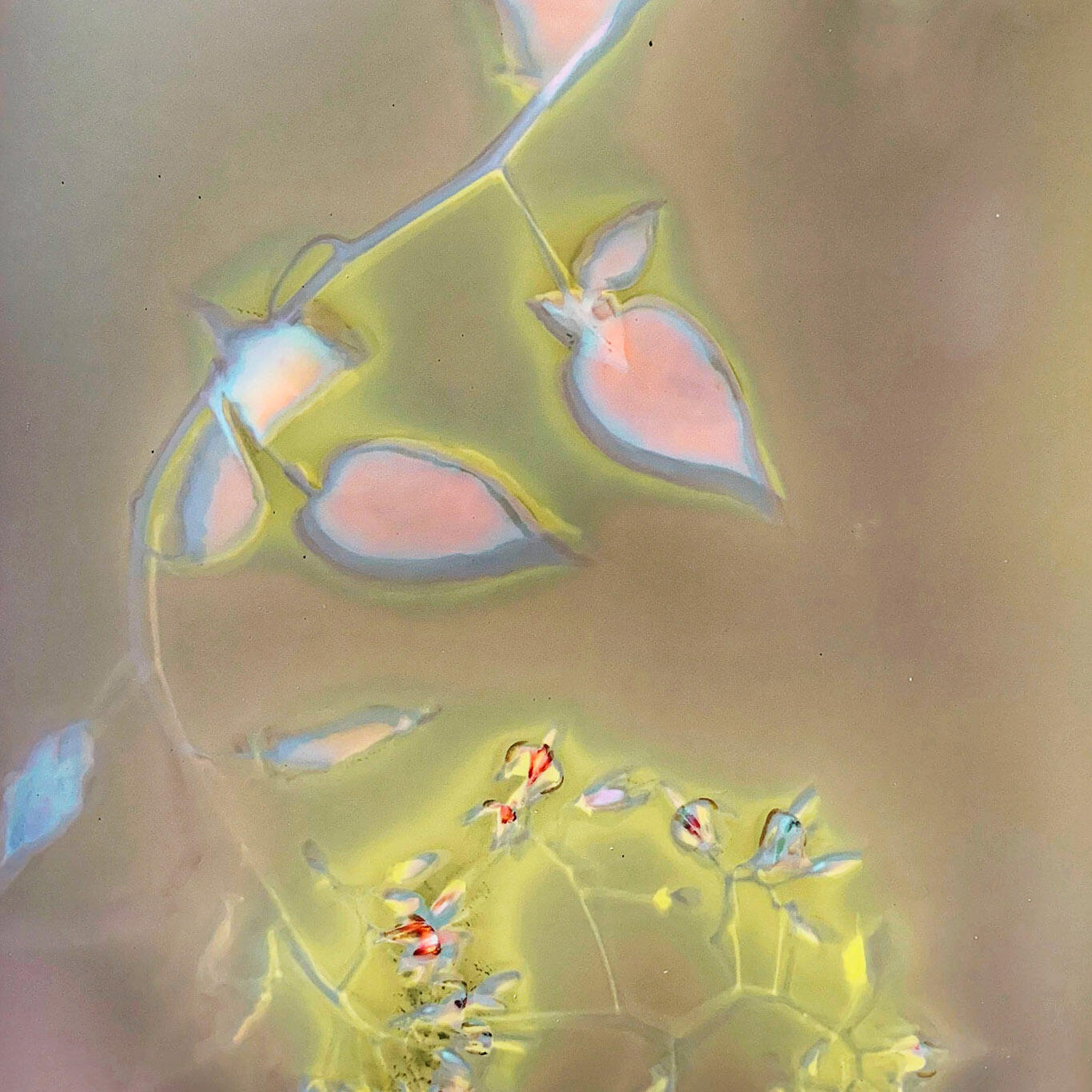Semester:
Offered:
 Session: June 2 - July 21 (8 classes)
Session: June 2 - July 21 (8 classes)
Level: Beginning - Advanced
Day/Time: Wednesdays, 6:30pm – 8:30pm ET
Instructor: Anne Eder
Course Description: Get outdoors with this introduction to plant-based printing processes that use light and common plant materials obtained from the backyard, a nearby park, or even the grocery! This class is an introduction to plant-based printing processes that use light and common plant materials! It will cover anthotypes, chlorophyll printing, and other plant-based printing methods. We will meet via online platform once a week for demonstrations and students will then take what they have learned and complete that week’s assignment, returning for troubleshooting, critique and a new demo each week. Most items needed to take this course should be easily obtainable from the backyard, a nearby park, or even the grocery.
With your registration, you will receive access to a Harvard Google Classroom which will provide a place for sharing of ideas, discussion, hand-outs and will feature recordings of each class. In case you miss a class or would like to review, these recordings will be available for 30 days after the end of the course.
Suggested Materials:
- Substrates—any good watercolor paper will usually work well, but consider fabric, nonglossy ceramic, wood, or other surfaces.
- A means of extracting juice from plants—juicer, blender, mortar and pestle—any of these will work.
- Denatured alcohol (Everclear or vodka will work!).
- Salt.
- Cheesecloth or fine sieve.
- Foam or regular brushes for applying emulsion. Small trays for dipping optional.
- A contact frame or some pieces of glass (tape the edges for safety, rigid cardboard or equivalent for backing, clamps or clips, tape, or old glass photo frame (no UV glass—we want those UV rays!)
- Assorted blossoms, petals, leaves, roots, veggies, etc. for juicing.
- Transparency sheets. These can be drawn on or run through a printer. If you cannot get transparencies, objects may be used such as leaves or flowers or other material that can be flattened for contact with the paper, or you can make a waxed paper transparency (we will discuss this in class).
- If you have them, small water vials are helpful.
- Black and white photo paper, any size any finish, short date or expired is okay, as well as fresh of course. Film, either sheet or roll, any size. Expired is fine.
- For making chemistry: vitamin C (ascorbic acid), washing soda (soda ash or sodium carbonate). Instant coffee.
For the second half of classes, a cyanotype kit is a good addition, as are some optional chemicals that will be discussed and may be bought later.
Clay and Material Purchases
This course fee covers instruction only. Participants are responsible for obtaining their own clay. Here is the list of available clays, tools and materials at the Ceramics Program. Once you have registered for this course and have purchased an item, you will be able to sign-up for a pick-up slot at the Ceramics Program - please note that you are picking up class materials when you do! You can also purchase the supplies at your local art supply store or online. If you would have questions, please email Ji-Eun Kim directly at jikim@fas.harvard.edu.
Glazing and Firing Services
Registered students are welcome to drop off, fire and glaze your ceramic work through the Harvard Ceramics program. We charge 3 cents per cubic inch for all firings (bisque and glaze). We offer electric kiln (Cone 06 for bisque, 6 for glaze), high fire reduction and soda vapor firings (Cone 10). Specialty firing temperatures can be arranged. At the end of each session, you will be invoiced for the cost of your firings.
Course Fees: Free for Harvard College Undergraduate Students; $400 for Harvard Graduate Students, Harvard employees and Adult Community.
For questions regarding course content, policies or materials, please contact Director, Kathy King.
For questions regarding registration, please contact Administrative Coordinator, Ji-Eun Kim.
Location: Zoom